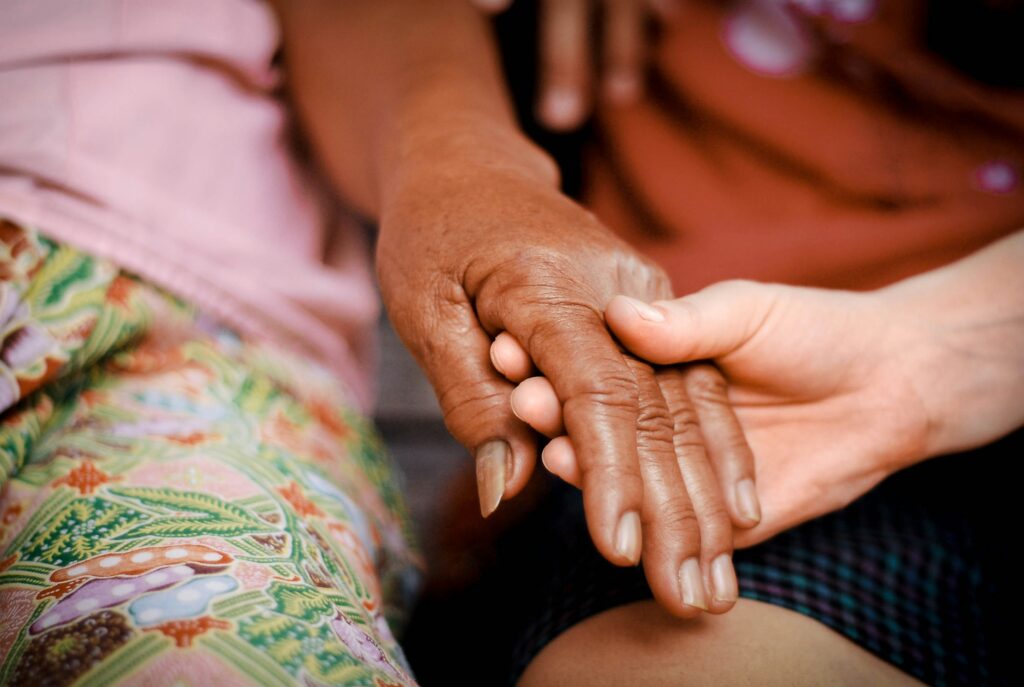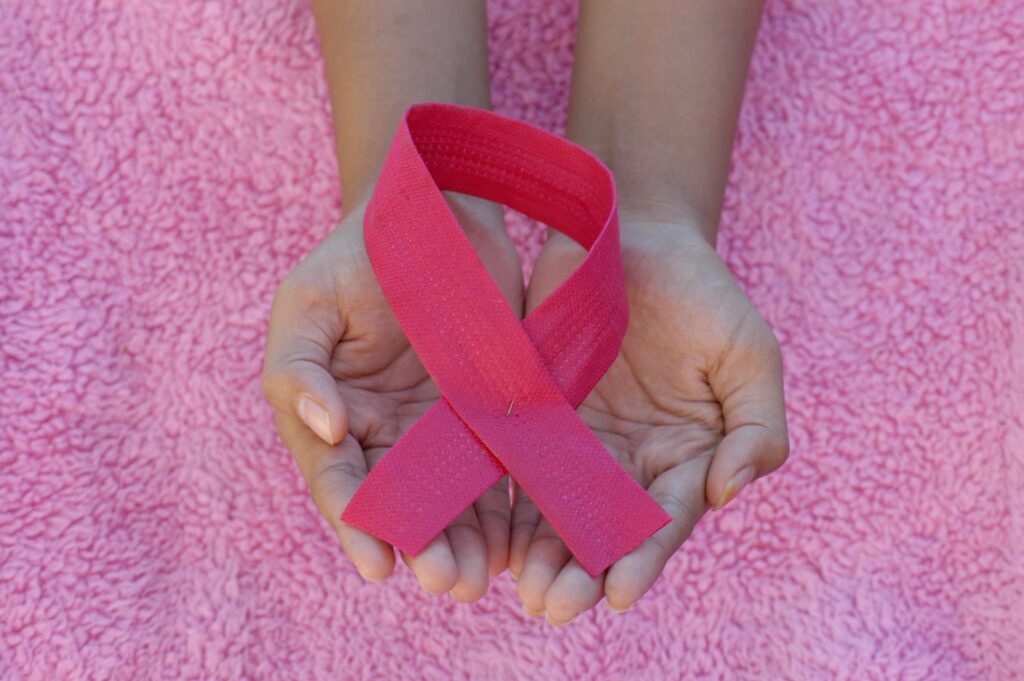The Power of Compassion

My father and I had a close relationship when I was growing up. He was my protector and savior. I looked up to him for guidance and problem-solving until I became an adult. He watched me grow into an independent woman who no longer needed him in the same way. Over the years, as I became more successful and built a family of my own, something shifted. He began envying me. I often wondered why my father, who loved me dearly, wasn’t happy about my achievements. In the rush of life, I forgot the details of my childhood experiences with him. I believe I was unconsciously omitting what didn’t feel good and holding onto the idealized image I had created as a child. Everything became painfully clear when I had to care for him after his cancer diagnosis. His anger surfaced more vividly, and his old demeanor showed his true face. He was dealing with immense physical pain and depression due to his prognosis, but none of this justified the way he was treating me. The first time he yelled at me—because I had moved his glass of water from the counter to the sink—it triggered a flood of memories. His loud voice and negative comments hit me like a ton of bricks. As an adult, I suddenly felt like a five-year-old child again, unsure of how to deal with the emotional abuse. I found myself grappling with an impossible question: How do I balance compassion with boundaries? He was sick, after all. Should I walk away, knowing he needed care? Should I yell back and show him that I, too, could be as forceful as him? Or should I bring compassion into the space, ignoring my past experiences and the present unfair treatment? Wrestling with Inner Conflict My spiritual side was completely conflicted. I believed in treating myself with kindness and respect, yet here I was, enduring verbal abuse from someone I loved. This wasn’t the journey I had imagined for myself. Allowing even my father to mistreat me felt like a betrayal of my values. But how could I leave him when he needed me the most? I lost countless nights of sleep over this. By day, I felt as though I was walking on thin ice, learning to avoid topics that might annoy him. I adjusted to his flow of questions and concerns, keeping conversations shallow to avoid conflict. He was in his world, and I often became his emotional punching bag. Over time, I realized I needed to protect my well-being. I started reducing the hours I spent caring for him and allowed other family members and friends to step in. I made time for myself—treating myself to a massage or taking long walks in the park. I began journaling, reflecting on what went well each day, and releasing the negativity by attaching forgiveness to it. I reminded myself that one day, I would look back and cherish the small moments of quality time we shared, even amidst the challenges. Lessons in Compassion and Boundaries This chapter of my life taught me a profound lesson: compassion has its limits. It’s okay to say, “Not today, but maybe tomorrow.” Just because he was my father didn’t mean he had the right to mistreat me, especially when I was showing up for him wholeheartedly. Finding Support This type of situation is difficult and often embarrassing to share with friends or family. If your immediate circle cannot offer the support you need, consider joining in-person or online support groups. The last thing you want to do is store these emotions in your body, where they can act as poison. Let them out. Above all, remember that taking care of yourself is not selfish—it’s necessary. Compassion starts with yourself. Only then can you offer it to others without losing your peace. Namaste, Shab
Finding Light in Grief

For as long as I can remember, the word “grief” has carried a heavy and dark energy. I used to define it as a state of loss where hope seems impossible to find. I also thought grief applied only to the loss of a loved one, but over time, I’ve learned it encompasses more. It can be the loss of a home filled with memories or the loss of a job that someone worked tirelessly to achieve. Grief is deeply personal, and its meaning is unique to each of us. What does grief mean to you? Two decades ago, I attended a class on grief at a spiritual center in my town to support a friend. A week later, my father passed away. I don’t believe in coincidences, so I took it as a sign that the Universe was preparing me for a profound life lesson. The Beginning of Grief My father’s passing didn’t come as a surprise—he had been battling Parkinson’s disease for a year. But I can trace my grief back to the day we made his permanent residency at a nursing home official. That day, everything changed for my small family. My mother, sister and I were thrust into a new reality where one vital piece of our lives was missing. My mother felt lost at home without him. My sister, whose children had grown and moved away, became his primary caregiver. As for me, I often felt like I lived at the nursing home more than I did in my own house. I visited him regularly and spent quality time with him, yet the shadow of his impending passing loomed constantly. Losing him felt unbearable, and yet, all he could talk about was my mother, who was alone at home. His love for her remained steadfast until the very end. He even asked me to promise that I would ensure she never felt lonely after he was gone. I did my best to honor that promise. I would laugh and share stories with him, but the drive home was always filled with tears. Anger surged within me toward relatives and friends who couldn’t be bothered to visit him. Denial became my coping mechanism. I refused to acknowledge the inevitable changes heading our way. Staying present, sitting beside him, felt like the only way to bear it. The Weight of Anticipatory Grief Eventually, I sought the help of a psychologist at work. The overwhelming emotions felt unbearable. When I explained how I felt, the psychologist thought my father had already passed. She then introduced me to the concept of “anticipatory grief”—the mourning that begins before a loved one’s death. It was a revelation. I wasn’t going crazy. My anxiousness and my need to say goodbye, even while he was still alive, were part of the grieving process. Despite the emotional turmoil, there were moments when I wanted to pack his belongings and bring him home. But deep down, I knew I couldn’t provide the level of care he needed. The nursing home staff offered 24/7 medical supervision and safety measures that I couldn’t replicate. I had responsibilities at my job in the hospital, and my limitations became painfully clear. Finding Light Amidst the Darkness Looking back now, I see how fortunate we were to have spent those final moments with him. But at the time, grief felt like a relentless monster, looming over us and consuming every aspect of our lives. Whether it’s anticipatory grief or the grief that follows a loss, the darkness can feel all-encompassing. But with time—that same victorious monster—the darkness begins to lift. Little by little, light starts to seep in. During this process, it’s essential to take things one day at a time and check in with yourself. Ask questions: Am I angry today? Am I sad today? Are my emotions all over the place? Am I breathing deeply today? These small acts of self-awareness can open the door to healing. Your mind and body are incredibly intuitive; they know how to begin the healing process if you give them the space. Be patient with yourself and observe as the clouds of grief slowly start to part. The light is there, waiting for you to let it in. Namaste, Shab
Emotional Impact – Coping with the Psychological Aspects of Treatment

Last week, we discussed the journey to normalcy and the importance of ongoing care after completing your radiation therapy. However, the transition into post-treatment life often brings an array of emotions that can feel overwhelming. Breast cancer treatment is not just a physical battle; it takes a significant emotional and psychological toll as well. Acknowledging and addressing these emotional challenges is a vital part of the healing process. Many breast cancer patients experience a spectrum of emotions during and after treatment. Anxiety about treatment outcomes, fear of recurrence, sadness over physical changes, and feelings of isolation are all common. These emotions are natural responses to a life-altering diagnosis and intensive treatment regimen. According to the American Cancer Society, recognizing and normalizing these feelings can be an empowering step toward recovery. Understanding that you are not alone in these experiences can help reduce the stigma around seeking support. One of the most effective ways to manage the psychological effects of cancer treatment is by working with a mental health professional. Therapists, counselors, and psychologists trained in oncology-related care can provide a safe space to process your emotions. They also equip you with tools to handle fear, uncertainty, and stress. Techniques like cognitive-behavioral therapy (CBT) can help reframe negative thoughts and foster a more positive outlook. Even short-term counseling can significantly improve your mental well-being. Mindfulness practices such as meditation, yoga, or progressive muscle relaxation are additional strategies that help manage emotional stress. These techniques are backed by evidence suggesting their ability to reduce anxiety and enhance mood. For instance, deep breathing exercises can provide immediate relief from stress, while mindfulness meditation fosters a long-term sense of calm and emotional resilience. Many cancer centers offer classes or resources on these practices, allowing patients to incorporate them seamlessly into their routines. Another invaluable resource is connecting with others through support groups. Whether in person or online, these groups provide a sense of community and shared understanding. Meeting individuals who have faced similar challenges offers comfort and helps combat feelings of loneliness. The sense of belonging that emerges from these connections can play a critical role in emotional recovery. If reaching out to a group feels overwhelming, consider starting with a trusted friend or family member. Sharing your journey, even in small steps, can help build a support network that reinforces your strength during tough times. Remember that seeking help is a sign of courage, not weakness. Organizations like the Cancer Support Community or Breastcancer.org provide directories of local and virtual support groups tailored to your needs. Finally, maintaining a balance between focusing on your emotional needs and celebrating milestones in your recovery can provide hope and motivation. Journaling, engaging in creative activities, or even planning small celebrations for completing milestones in your treatment can bring positivity into your life. Emotional healing is a process, and it’s okay to take it one day at a time. As we move forward we’ll explore how psychological support provided by mental health professionals can further enhance your recovery. From individual therapy to family counseling, these resources offer critical tools to manage the emotional complexities of your cancer journey.
Navigating New Realities and Finding Hope

The journey through my father’s Stage 4 lymphoma brought a myriad of challenges and emotions. As we faced the demands of his treatment, there were moments of hope and progress, tempered by new hurdles that tested our resolve. The balance of managing caregiving, work, and personal life became increasingly delicate as my father’s condition evolved. Initially, my father’s response to the chemotherapy and radiation treatments was promising. His resilience through the early stages of treatment gave us hope and a sense of optimism. Each successful round of treatment seemed like a small victory against the relentless progression of his illness. His determination and strength in the face of adversity were inspiring and provided a much-needed boost to our spirits. However, as the treatments continued, we began to encounter new challenges. Towards the end of his chemotherapy regimen, my father started experiencing “chemo fog”—a cognitive impairment that affected his memory, focus, and overall mental clarity. This new reality was a significant adjustment for all of us. My father’s advanced age compounded the issue, making it even more challenging to navigate. The cognitive decline added an extra layer of stress to his already complex medical situation. The emotional and physical toll of managing his care intensified. The cognitive challenges he faced were not only difficult for him but also for us as caregivers. It was painful to witness his struggles with tasks that once came easily to him. The frustration and confusion that came with chemo fog affected his quality of life and added a layer of complexity to our caregiving responsibilities. Balancing these new challenges with my ongoing work and personal life became an intricate dance. Each day required careful planning and flexibility as we adjusted to my father’s changing needs. Despite the strain, moments of relief and connection with family became even more vital. These moments offered respite from the emotional weight of caregiving and provided a space for us to regroup and recharge. Amidst the difficulties, I clung to the small victories and the strength we drew from one another. The support from my family, especially my brother, continued to be a cornerstone of our coping strategy. His assistance with my father’s care and his emotional support were invaluable during this challenging time. His presence was a constant reminder that we were not alone in this struggle. Looking ahead, the hope that kept us going was the belief in the possibility of recovery and the eventual return to a semblance of normalcy. While the road was fraught with obstacles and uncertainty, the progress we saw in my father’s condition and the moments of respite we found were sources of strength. As we faced each day, we held onto the hope that the trials of this period would ultimately lead to a future where healing and peace could be found. In reflecting on this journey, the experience underscored the importance of perseverance and the strength found in familial support. Despite the ongoing challenges, the commitment to my father’s well-being and the support of those around us provided a beacon of hope. The journey was defined by both struggle and resilience, and through it all, we continued to hold onto the promise of brighter days ahead.
Post-Treatment Recovery – The Journey to Normalcy and Ongoing Care

After navigating the mid-treatment challenges we discussed last week, you’re now approaching the end of your radiation therapy. This is a significant milestone, but it’s also the beginning of a new chapter in your journey—post-treatment recovery. The transition from active treatment to recovery can be both exciting and daunting as you adjust to life after cancer treatment. The first step in post-treatment recovery is understanding that it’s a gradual process. Your body has been through a lot, and it will take time to heal. Fatigue may linger, and it’s essential to listen to your body and rest when needed. Many patients find that maintaining a healthy diet and gentle exercise can help speed up recovery. According to the American Institute for Cancer Research, a diet rich in fruits, vegetables, and whole grains, combined with regular physical activity, can improve your overall well-being and help rebuild your strength. Ongoing care is also a critical aspect of post-treatment recovery. Regular follow-up appointments with your oncologist are vital to monitor your health and catch any potential issues early. These appointments may include physical exams, imaging tests, and discussions about your overall health. It’s also important to continue any recommended therapies, such as hormone therapy, to reduce the risk of recurrence. Emotionally, post-treatment can be a challenging time as you adjust to life after cancer. It’s not uncommon to experience a range of emotions, from relief and joy to anxiety and uncertainty about the future. Seeking support from friends, family, or a professional counselor can help you navigate these feelings. Next week, we’ll delve into the emotional impact of breast cancer treatment, focusing on coping strategies and resources to support your psychological well-being.
Mid-Treatment Hurdles – Managing Side Effects and Staying Motivated

Last week, we explored the treatment options available for early-stage breast cancer, emphasizing the importance of understanding and choosing the right path for your individual needs. Now, as you progress through treatment, you may face various challenges that require resilience and determination. Mid-treatment can be particularly tough as side effects begin to take a toll and the initial adrenaline of starting treatment starts to wane. Side effects such as fatigue, skin irritation, and emotional stress are common during radiation therapy. The National Cancer Institute recommends several strategies to help manage these symptoms. For example, staying physically active, even with light exercise like walking, can help combat fatigue. Skin care is also crucial—using mild soaps, avoiding tight clothing, and keeping the treated area moisturized can reduce discomfort from radiation-induced skin changes. Staying motivated during treatment is another significant hurdle. It’s easy to feel overwhelmed or disheartened as the weeks go by, but maintaining a positive mindset can have a powerful impact on your overall experience. Setting small, achievable goals for each week can help keep you focused and motivated. Whether it’s treating yourself to a favorite activity, practicing mindfulness, or connecting with a support group, these small steps can make a big difference in your mental and emotional well-being. As you manage these mid-treatment challenges, remember that this is a crucial phase in your journey. Next week, we’ll discuss post-treatment recovery, focusing on the path back to normalcy and the importance of ongoing care.
Early-Stage Breast Cancer – Understanding Your Treatment Options

In last week’s discussion on navigating the healthcare system, we emphasized the importance of clear communication with your medical team. Now, as we delve into the different stages of breast cancer treatment, it’s essential to understand the options available to you, particularly in the early stages. Early-stage breast cancer typically involves a localized tumor that has not spread beyond the breast or nearby lymph nodes. Treatment options at this stage are generally more straightforward, with a focus on eliminating the cancer and reducing the risk of recurrence. Surgery is often the first line of defense in early-stage breast cancer, with options ranging from lumpectomy, which removes the tumor and a small margin of surrounding tissue, to mastectomy, which involves removing the entire breast. Radiation therapy is frequently used after surgery to target any remaining cancer cells and lower the risk of recurrence. According to the American Cancer Society, the combination of surgery and radiation offers a highly effective approach for many early-stage patients. In some cases, additional treatments such as chemotherapy, hormone therapy, or targeted therapy may be recommended based on the specific characteristics of your cancer. For example, if your cancer is hormone receptor-positive, hormone therapy might be used to block the cancer’s ability to use hormones to grow. The key is to have a comprehensive discussion with your oncologist to understand the benefits and risks of each treatment option and to tailor the plan to your unique situation. In some cases, additional treatments such as chemotherapy, hormone therapy, or targeted therapy may be recommended based on the specific characteristics of your cancer. For example, if your cancer is hormone receptor-positive, hormone therapy might be used to block the cancer’s ability to use hormones to grow. The key is to have a comprehensive discussion with your oncologist to understand the benefits and risks of each treatment option and to tailor the plan to your unique situation. As we move forward, the focus will shift to managing mid-treatment hurdles, where we’ll explore how to deal with side effects and stay motivated during the more challenging parts of your treatment journey.
Navigating My Father’s Long Recovery

A Gradual Road to Recovery After the initial shock of my father’s Transverse Myelitis diagnosis, the slow road to recovery began. His partial paralysis changed our lives, but over time and with consistent rehabilitation, he started regaining some mobility. Even small victories—like walking with assistance—were monumental, though his progress was often slow and marked by setbacks. His determination to regain independence became a source of motivation for both him and the family. Watching him endure physical therapy sessions reminded me of his resilience, even as we faced frustrating plateaus in his recovery. Coordinating Care Amid the Chaos Though my brother and I shared caregiving duties, much of the coordination still fell on me. Balancing my father’s medical appointments, physical therapy, and insurance was a demanding task. Despite having navigated this process before with my mother, it didn’t make it any easier. My brother, a high school math teacher, played a pivotal role in providing daily care for our father, allowing me to focus on logistical tasks. His steady presence and emotional support were invaluable as I juggled caregiving with my job and my role as a mother. Balancing Personal Life and Caregiving Caring for my father while raising my daughter felt like an impossible juggling act. The weight of family obligations left me feeling exhausted, even as I tried to maintain a balance for my daughter’s sake. Weekends were filled with caregiving responsibilities and attempts to create meaningful moments with her. Exercise continued to be a crucial way for me to cope, helping me release stress and recharge. I knew I had to take care of myself if I wanted to continue caring for my father and my child. Rediscovering Small Joys Despite the challenges, I began to find small moments of joy. Whether it was watching my daughter interact with her grandfather or witnessing my father take a few independent steps, these moments reminded me of the rewards of caregiving. Though exhausting, it was an act of love that deepened my relationships with both my father and my brother. Looking to the Future As my father’s health stabilized, I began to feel cautiously optimistic. While the future remained uncertain, I knew the resilience I’d built would help me navigate whatever lay ahead. With my brother’s support and my own coping mechanisms in place, I felt more equipped to handle caregiving while also reclaiming aspects of my own life.
Navigating the Healthcare System – Tips for Communicating Effectively with Your Healthcare Team

Last week, we talked about the importance of comfort during your radiation therapy sessions and the various strategies available to help you stay as comfortable as possible. Now, let’s turn our attention to navigating the healthcare system—a crucial aspect of your cancer treatment journey. Effective communication with your healthcare team is essential in ensuring you receive the best possible care. This week, we’ll provide practical tips to help you communicate effectively and make the most of your interactions with your medical team. Navigating the complexities of the healthcare system can be daunting, especially when you’re undergoing cancer treatment. However, effective communication with your healthcare team can significantly enhance your experience and ensure that you receive the best possible care. The American Cancer Society (ACS) offers several practical tips to help you stay informed and engaged in your treatment. First and foremost, preparation is key. Before each appointment, take some time to write down any questions or concerns you may have. This could include questions about your treatment plan, potential side effects, or the logistics of your therapy sessions. Having a list ensures that you cover all your bases during your visit and helps you make the most of your time with your doctor. Bringing a trusted friend or family member to your appointments can also be incredibly beneficial. They can provide emotional support, help you remember details, and take notes on important information. According to the National Cancer Institute (NCI), having a second pair of ears can be especially helpful when discussing complex medical information, ensuring that you fully understand your treatment plan and what to expect. Don’t be afraid to ask for clarification if something isn’t clear. Medical terminology can be confusing, and it’s important to understand
The Weight of Caregiving—Caring for My Father

A New Caregiving Role After my father was diagnosed with Transverse Myelitis, my life shifted yet again. Just when I had found some stability after my mother’s passing and the conclusion of my difficult divorce, I was pulled back into caregiving—this time for my father. His sudden partial paralysis brought on by the rare condition left him dependent on others. With him living two hours away, the challenge felt even greater. The Emotional Toll Watching my father struggle with basic tasks was heartbreaking. It stirred up memories of my mother’s illness, reviving emotions I had hoped were behind me. Balancing my father’s needs with my own responsibilities as a mother and working professional quickly became overwhelming. The long drives to his appointments and the coordination of his care consumed much of my time and energy. Emotionally, it felt like I was being pulled back into a cycle I had just escaped. Support from My Brother Thankfully, I wasn’t alone in caring for my father. My brother, a high school math teacher, was incredibly supportive during this time. Despite his own demanding schedule, he often stepped in to help with Dad’s care, taking on many responsibilities that would have been impossible for me to handle alone. He was also instrumental in offering me much-needed emotional support, helping me talk through the guilt, stress, and exhaustion I felt. His presence made the burden more bearable, and I’m not sure how I would have managed without him. Balancing Career and Caregiving Though I had rebuilt my career and life after the divorce, my father’s needs began to affect my ability to focus at work. Weekends that had once been for family time or personal recovery became devoted to managing his care. The strain on my career and personal life was undeniable, and I felt the same juggling act I had endured with my mother’s illness repeating itself. Finding Moments of Relief Exercise remained a critical outlet for me. Whether it was a long walk or a tough workout, it gave me a way to release the stress of caregiving. I also leaned on close friends and, of course, my brother for emotional support. This network of support made a difficult time more manageable and reminded me that I didn’t have to go through it alone. Letting Go of Guilt There were moments of frustration—feelings of resentment not towards my father, but towards the situation itself. After years of building myself back up, I was again navigating the exhausting world of caregiving. Accepting those mixed emotions, and sharing them with my brother, helped me let go of the guilt and realize that feeling conflicted didn’t mean I wasn’t a good daughter or caregiver. Moving Forward, One Day at a Time As my father’s condition progressed, I tried to focus on the time we had together rather than the overwhelming demands of his care. With my brother’s help and the support of professional caregivers, I learned to prioritize what truly mattered. Though caregiving was still difficult, it became an act of love rather than a burden, and I began to move forward—one day at a time.
